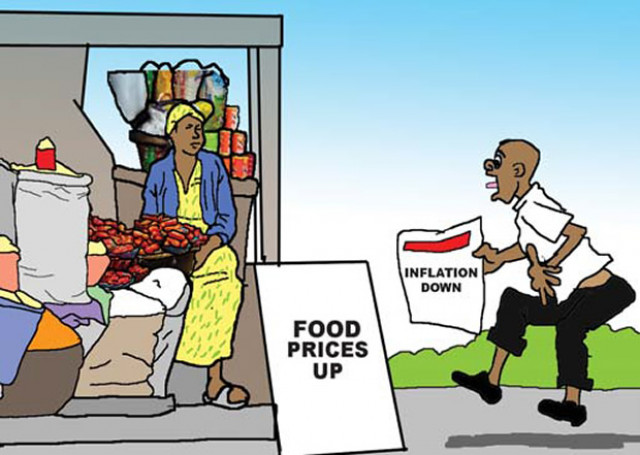LAGOS, NIGERIA — As Nigeria’s inflation rate continues its relentless climb, the nation’s workforce is being crushed under the heavy burden of a cost of living that far outpaces their incomes.
From public servants to private employees, the average Nigerian worker now faces daily battles to secure the barest essentials; food, shelter, transport, and healthcare. The economic crisis engulfing Africa’s largest economy has left many asking: how long can the Nigerian worker endure?
Economic Realities: Inflation vs. Stagnant Wages
Recent figures from the National Bureau of Statistics (NBS) indicate that inflation reached over 33% by the end of 2024. Food prices have soared even higher, with staples like rice, beans, and bread now unaffordable for many families. Yet, the national minimum wage remains at ₦70,000, barely enough for a week’s groceries in many urban centers.
Despite the government’s assurances of reforms, the wage structure has remained largely unchanged. Most civil servants earn salaries that were last reviewed years ago, and the private sector offers little respite. Salary delays, casual contracts, and job insecurity dominate the employment landscape.
Housing, Transportation, and Utilities Out of Reach
Housing in major cities such as Lagos and Abuja has become prohibitively expensive. Rent hikes have forced many low-income earners into overcrowded or substandard living conditions. Meanwhile, the removal of fuel subsidies has led to a sharp rise in transportation costs, making daily commuting a major financial strain.
Electricity tariffs have also climbed, though service delivery remains unreliable. "We pay more for darkness than we ever paid for light," lamented a resident of Ibadan, expressing the frustrations of many.
Healthcare, Education Become Luxury Items
For millions, healthcare and education are now luxuries. Government hospitals are underfunded, overcrowded, and lacking basic resources. Private hospitals, while better equipped, charge fees far beyond the means of most workers.
Parents are also struggling to keep their children in school. School fees, uniforms, and learning materials have all become more expensive, with little or no government support to mitigate the costs.
Psychological Toll and the Youth Exodus
The daily grind is taking a mental toll on workers. Stress, anxiety, and depression are on the rise, as more individuals face the crushing pressure of debt and financial insecurity. Family dynamics are being tested, and in some cases, broken by the inability to meet basic needs.
Nigeria's youth, meanwhile, are increasingly turning to the "japa" route, the pursuit of better opportunities abroad. With youth unemployment at over 40%, many see emigration as the only viable path to a better life.
Unions Cry Out, Government Stalls
Labour unions have continued to push for wage reviews, cost-of-living allowances, and economic safety nets. Nationwide protests and strikes have become frequent, but concrete action from the federal government remains limited. Policies such as the removal of fuel subsidies and currency devaluation, though aimed at long-term stability, have only deepened immediate suffering without corresponding welfare programs.
Critics argue that the government’s economic strategy lacks a human-centered approach. “We are reforming the economy at the expense of the people,” said a union leader during a recent protest in Abuja.
The Road Ahead: Urgent Policy Shifts Needed
Experts agree that urgent reforms are necessary. These include adjusting the minimum wage to match current living standards, providing subsidies for essential goods, investing in affordable housing, and revamping public transportation and healthcare systems. Also critical is economic diversification to reduce overreliance on oil and create more jobs in agriculture, technology, and manufacturing.
Until these issues are addressed, the plight of Nigerian workers will continue to worsen, and the dream of a stable, prosperous life will remain out of reach for millions.




















